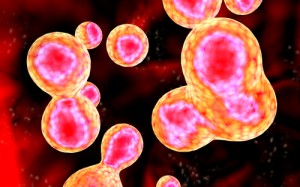 Phenytoin, a drug that blocks sodium channels on the membranes of cells, may have implications on breast cancer cells.
Phenytoin, a drug that blocks sodium channels on the membranes of cells, may have implications on breast cancer cells.
Previously, phenytoin was only used as a drug to treat epilepsy, but researchers in the Department of Biology at University of York are finding ways it can battle breast cancer cells.
“This is the first study to show that phenytoin reduces both the growth and spread of breast cancer tumour cells,” said Dr. Will Brackenbury, lead investigator on the study, in a news release. “This indicates that re-purposing antiepileptic and antiarrhyrthmic drugs is worthy of further study as a potentially novel anti-cancer therapy.”
Published in Molecular Cancer, the team’s study, “The Sodium Channel-blocking Antiepileptic Drug Phenytoin Inhibits Breast Tumour Growth and Metastasis,” investigated the effects of phenytoin on metastatic MDA-MB-231 breast cancer cells grown in vivo with the interest of decreasing cell growth and metastasis. The team chose phenytoin as a modulator of breast cancer cell activity because some tumor cell types, including breast cancer cells, express voltage-gated sodium ion channels (VGSCs) that can be acted on by phenytoin.
To begin, the team implanted orthotopic xenografts of the cancer cells to create an animal model of breast cancer. After, they used 60 mg/kg phenytoin, the dose used to treat epilepsy, to treat the animals.
Treatment with phenytoin inhibited tumor cell growth, proliferation, and invasion into surrounding mammary tissue. On top of these results, cancer cell metastasis to the liver, lungs, and spleen was reduced in treated animals compared to controls. Finally, animal weight was not affected with the course of treatment, indicating the drug was well tolerated.
[adrotate group=”3″]
“We propose that pharmacologically targeting VGSCs, by repurposing antiepileptic or antiarrhythmic drugs, should be further studied as a potenitally novel anti-cancer therapy,” wrote the authors in their paper.
One of the current forms of phenytoin, known as Dilantin, is an injectable solution that must be diluted before intravenous delivery to patients. It can have severe cardiovascular reactions if administered too quickly, especially in pediatric patients. Whenever possible, oral phenytoin is recommended to decrease cardiac risks and local toxicity. These facts motivate the need for further preclinical research that uses phenytoin to treat breast cancer in animal models of the disease to ensure patients do not have adverse reactions to treatment.

